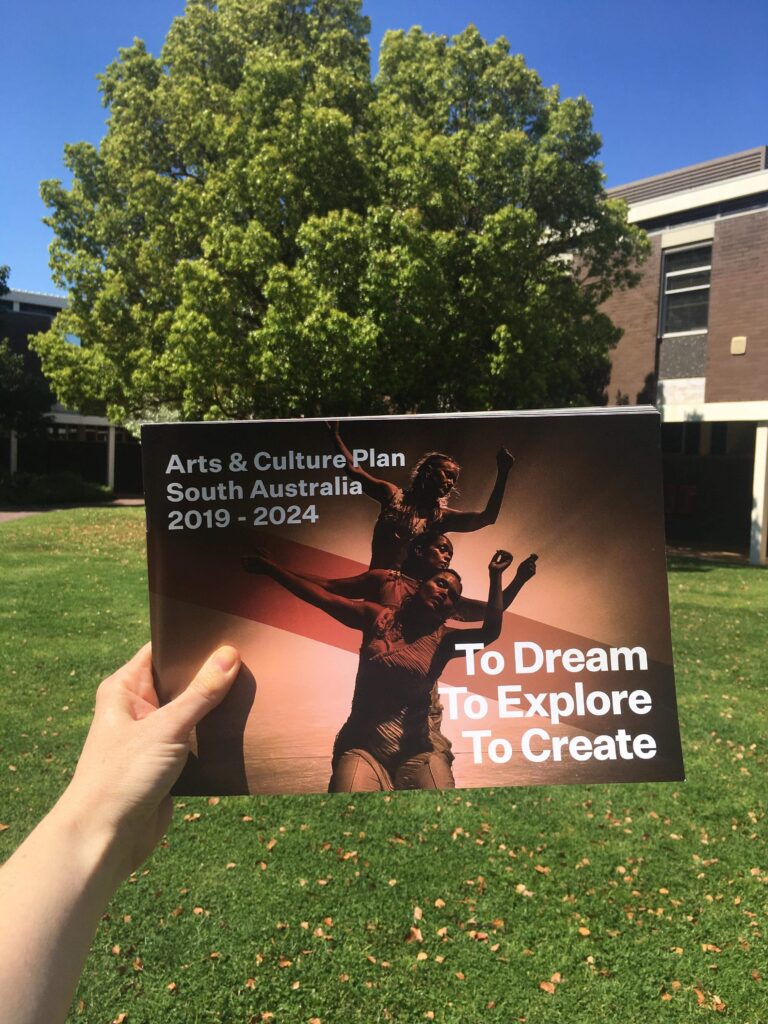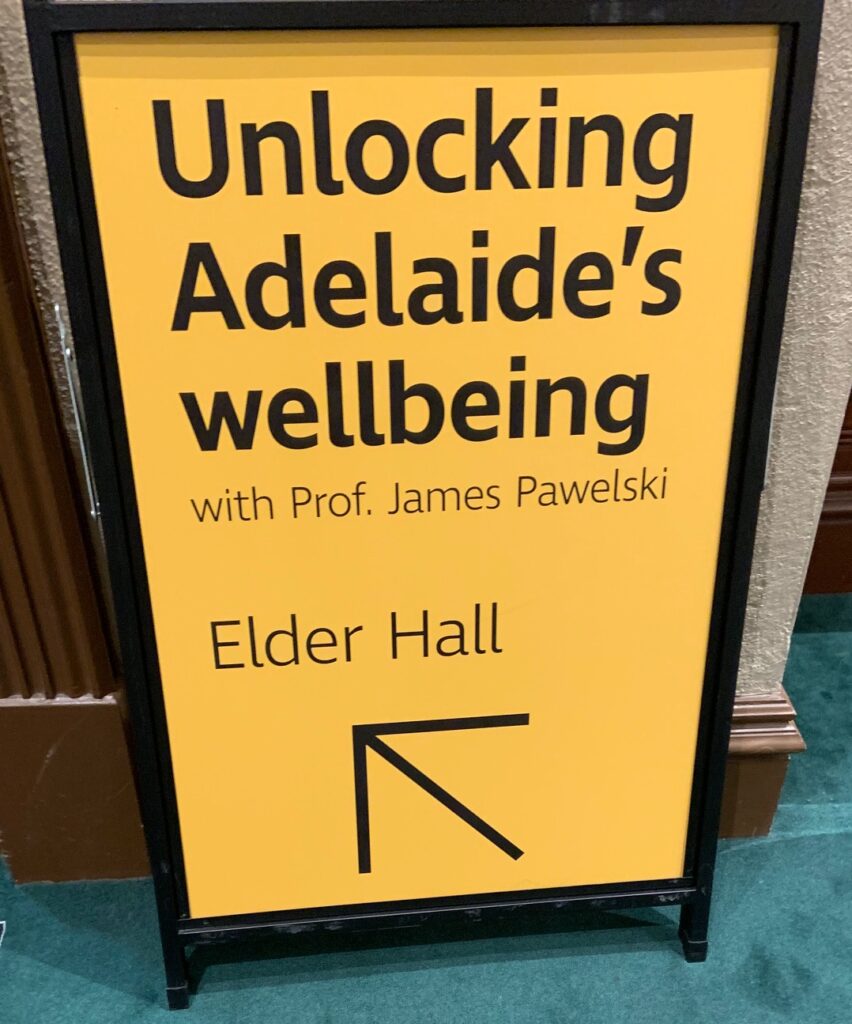
After months of consultation and research, the arts review and plan for South Australia has been released by the South Australian government’s Department of Premier and Cabinet. The report highlights the “richness of arts and culture that exists in our State” and great work done by the cultural sector in South Australia.
Underpinned by four values – visionary leadership, strategic collaboration, embracing diversity and courageous experimentation – the Plan set outs six goals to guide the growth of and investment in the State’s leadership in the arts and cultural sector. Interestingly, the Plan uses elements of narrative storytelling “as a way to provide an alternative perspective through which to view the arts and cultural landscape of South Australia.” Case studies from various perspectives and points of view are also used to “illuminate and celebrate” arts and cultural activities.
Most significantly for the Laboratory Adelaide research project, meaningful ways of measuring the value of arts and culture is a specific area of focus. This priority, “Measure,” is included within Goal 6 (p. 40 of the Plan) and is borne out in full in a section entitled “Capturing value and impact” (pp. 43-43).
This focus follows a recommendation by Tony Grybowski and Graeme Gherashe to:
Develop an evaluation and measurement framework that captures the value of arts and culture, one that builds on and draws together the existing work undertaken in this area.
Recommendation 13.1 p. 91 The Arts Review for South Australia
In making this recommendation, Grybowski and Gherashe refer to the work of the Laboratory Adelaide research project and that of Professor Justin O’Connor (UniSA). Of particular note, one of their suggested initiatives includes:
Progressing Cultural Value frameworks initiated by South Australian researchers in partnership with the South Australian Government
p. 91 The Arts Review for South Australia
The Laboratory Adelaide team welcomes the Arts Review and Plan. It is heartening to see so many substantial ideas put forth, the result not only of extensive consultation, but of deep thinking about the needs of a diverse sector with a past to be proud of, and a future to look forward to.

